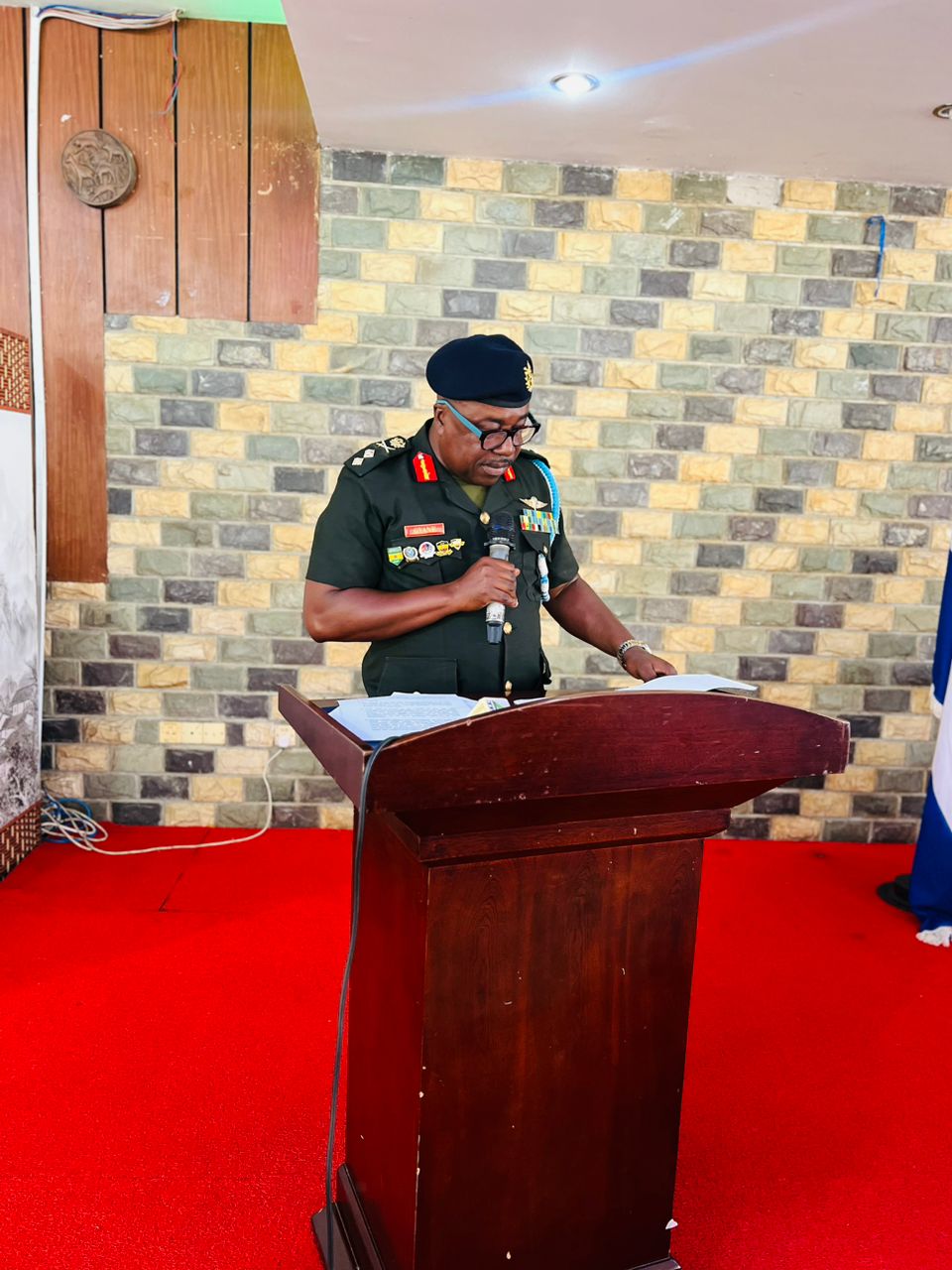The Commandant, Kofi Annan International Peacekeeping Training Centre (KAIPTC) – Major General (Maj Gen) Richard Addo Gyane, has asserted that human development and the growth of strong societies, are based on early childhood development.
He made the assertion when he addressed the closing session of a weeklong Mobile Training Version of the Child Protection Course, which was held at the Bintumani Hotel, Freetown, Sierra Leone, on Friday 11 October 2024, as the Chief Guest.

In an insightful speech laden with some critical analyses, General Gyane stated that poverty is not falling fast enough; and that lots of people in some countries would continue to experience high levels of extreme poverty by 2030, specifically, children in sub-Saharan Africa, who would form a large and growing share of poverty and, by extension, of the prospective shortfall from the United Nations’ (UN) Sustainable Development Goals (SDG) target.
With the analogy, the General said governments and donors should bring Child Poverty in from the periphery, and reposition it at the center of the agenda for achieving the 2030 Goal of ending extreme poverty.
He said the 2030 SDGs envisage an end to extreme poverty for ‘all people everywhere’, however, that goal is drifting out of reach for one group of people in one region – children in Africa – and that presently, over 250 million children under the age of 5 years are not reaching their full developmental potential, in low to middle-income countries, due to several bottlenecks.
He furthered that at a cursory glance at the African continent, child population would be one billion by 2055, making it the largest child population on the globe, and with current trends, some 305 million African children – two in every five – could be living in extreme poverty by 2030, accounting for over half of all global poverty, although it was earlier estimated that about 87 million would be born into poverty each year in the 2020s.
While mortality rates have declined among all age groups in Africa, child deaths tend to be concentrated at the youngest age groups, with 85% of all deaths to children under age 15, occurring among children younger than 5years.
He added that it is envisaged that with the current changing demographics and a growing population, Africa would require additional 4.2 million health workers above the current growth levels to meet World Health Organization minimum standards, thus requiring an increase of 1.3 million Primary School Teachers to meet the best sub-regional performers’ pupil-teacher ratio by 2030.

All these efforts, General Gyane contended, shall be in vein unless a deliberate Child Protection policy, with protective nests, are provided and implemented by competent agencies, and that to ameliorate the challenges that bedevil the common social progress of children in Africa, governments must implement a strategic early childhood development policy.
“These policies must be designed to invest in early childhood development as a long term strategy for poverty eradication, and to address poor Early Childhood Development”, Maj Gen RA Gyane stated.
On the essence of the course, the Commandant said Child Protection means safeguarding children from harm, which includes violence, abuse, exploitation and neglect.
He continued to say that the goal of Child Protection is to promote, protect and fulfil children’s rights to protection from abuse, neglect, exploitation and violence, as expressed in the UN Convention on the Rights of the Child (UNCRC), and other human rights, humanitarian and refugee treaties, conventions and national laws.
‘Child Protection’ in this context, therefore, should not be confused with the generic protection of children’s rights, which is the responsibility of everyone working with children, for it is crucial to be able to notice if a child is experiencing abuse, so they can receive the needed support, he continued.
Although Child Protection is often conceived from the point of view of neglect, physical, emotional abuse and sexual abuse, and children are usually exposed to more than one form of abuse, with signs varying, a child may not always disclose abuse, preferring to remain silent for a variety of reasons, to avoid possible ridicule and blame for the sins of others.

The Mobile Training Version of the Child Protection Course, he said, provides the needed training to enable better eliciting of appropriate response, when one perceives a child to be suffering.
The KAIPTC Commandant said, the course was structured to provide participants with analytical skills necessary for the promoting and understanding of Child Protection concepts, and afforded participants an opportunity to acquire basic knowledge on mission-specific situations, which are likely to be encountered with respect to Child Protection duties.
The course also sensitized participants on the in-country Child Protection institutional roles and challenges, with a view to promoting a better enforcement of Child Protection mandates.
Present at the ceremony included the Deputy Inspector General, Sierra Leone Police Force – Mr Aiah Samadia; Assistant Inspector General, Training – Mr Sahr Senesi; Course Director – Assistant Commissioner of Police Osman Abdul-Razak, Course Facilitators, and the Course Participants.
Kofi Ampeah-Woode
